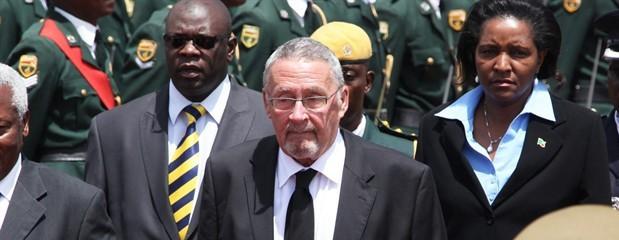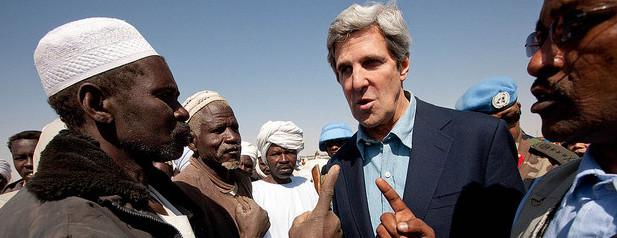Zambia: what next after another president dies in office? – By Sishuwa Sishuwa

 On 28 October 2014, Zambia’s President Michael Sata passed away at London’s King Edward VII Hospital, where he was being treated for an undisclosed ailment. After a decade in opposition and three previous unsuccessful attempts, Sata and his Patriotic Front (PF) party rose to power in September 2011, defeating incumbent Rupiah Banda of the then governing Movement for Multiparty Democracy (MMD). He becomes the second Zambian leader to die in office within the past six years, following President Levy Mwanawasa’s death in August 2008. This raises a number of important questions: will the PF survive the succession battle? Who will emerge as the country’s next president? What are the chances of an opposition victory?
On 28 October 2014, Zambia’s President Michael Sata passed away at London’s King Edward VII Hospital, where he was being treated for an undisclosed ailment. After a decade in opposition and three previous unsuccessful attempts, Sata and his Patriotic Front (PF) party rose to power in September 2011, defeating incumbent Rupiah Banda of the then governing Movement for Multiparty Democracy (MMD). He becomes the second Zambian leader to die in office within the past six years, following President Levy Mwanawasa’s death in August 2008. This raises a number of important questions: will the PF survive the succession battle? Who will emerge as the country’s next president? What are the chances of an opposition victory?
An acting president who cannot run?
When Sata left the country for treatment, he appointed Edgar Lungu, the Minister of Defence, to act as President in his absence, overlooking, as he had consistently done since assuming office, Vice-President Guy Scott. This was despite the fact that, like on all previous occasions, he had no legal discretion to appoint any other person if the Vice-President was available. However, in the wake of his death, Vice-President Guy Scott assumed power, as per the Constitution, and became the new acting President for an interim period of three months, during which he is expected to preside over a political transition.
Although the focus, especially outside Zambia, has been on the white man turned President, despite the fact that very little separates Scott from Sata in the way of political practice, this adherence to the Constitution highlights the growing consolidation of Zambia’s democracy, especially in light of the experience of many other countries in Africa, Asia and South America where power vacuums or unclear succession guidelines have led to military interventions.
As was the case after Mwanawasa’s passing, a presidential by-election has to take place within 90 days of Sata’s death, in accordance with the country’s Constitution. This effectively means elections have to be held by 28 January 2015. Of immediate concern to the ruling party is the succession question, particularly the choice of Sata’s successor. Vice-President Scott, who also assumes the functions of President of the Patriotic Front, has ruled himself out of the presidential race. In any case, he is legally barred from seeking presidential office.
The Zambian Constitution stipulates that “a person shall be qualified to be a candidate for election as President if both his parents are Zambian by birth or descent”, a requirement that Scott does not satisfy since his parents are from Scotland. (Though unlikely, it is however possible that Scott, 70, may turn around and seek to run for presidency by citing a 1998 landmark Supreme Court judgement that effectively struck down the “parentage clause” as unconstitutional, even if the judges did not have the courage to make this point explicit.)
As acting President, Scott is in a position to make fundamental decisions and is likely to be influential in the choice of Sata’s successor and the subsequent national election campaign. Succession-driven factional struggles within the ruling party are however, likely to lead to a major split, especially in the wake of Scott’s controversial and short-lived decision to dismiss Minister of Defence Lungu from his powerful position of party Secretary General. At the time of writing, Lungu had just been reinstated to his post, after Scott’s action received strong opposition from some of the senior PF leaders, highlighting the deepening divisions within the country’s governing party.
The evolution of PF factional struggles
The question of Sata’s successor began in earnest as early as February 2012 when Sata made a veiled indication that he would not seek a second term in 2016 when the next presidential and general elections were due. However it was not until mid-2013 that senior PF and Cabinet figures such as then Minister of Defence Geoffrey Mwamba and former party Secretary General and Minister of Justice Wynter Kabimba began positioning themselves for the ruling party’s top political job, creating serious cracks within the ruling core. Not even Mwamba’s resignation from Cabinet in December 2013, nor Kabimba’s dismissal from both his party and government posts in August 2014 averted the intra-party squabbles.
When Sata’s health began to deteriorate early this year, it only served to worsen the raging succession-driven divisions within his party. Despite evidence that he was unwell, neither Sata nor the PF admitted it, revealing the President’s determination to cling to power even in poor health and the ruling party’s failure to persuade him to step down or name a successor.
The fact that Sata, unlike Mwanawasa, was ill for quite a long time presented a rare opportunity to the PF to plan for a smooth presidential succession. Instead, two main factions seem to have emerged. One is seen as consisting of Bemba-speaking leaders from Sata’s ethnic and language group, such as the Minister of Finance Alexander Chikwanda, Sports Minister Chishimba Kambwili, Sata’s son, Mulenga, who is mayor of the capital city, Lusaka, and Mwamba, who still retains his parliamentary position on the PF ticket. The other is seen as comprising Scott, Kabimba, who still commands influence within the party, and other non-Bemba-speaking party figures such as national chairperson for elections Sylvia Masebo and treasurer and Minister of Local Government, Emmanuel Chenda.
Working in association with the Bemba-speaking faction is Lungu, the party’s embattled Secretary General, who combines this role with his Cabinet posts as Minister of Justice and Minister of Defence. There is growing speculation that Lungu, a non-Bemba, may be a compromise choice of presidential candidate for the Bemba-speaking faction in order to secure their positions and fend off accusations of ethnic inclination. If Lungu or any candidate belonging to this faction succeeds in their efforts to secure the party presidency, they may have to carefully consider how they relate to Scott, whom they cannot afford to antagonise, since, as acting president, he is in a better position to facilitate the deployment of public resources for partisan use in the coming election. The latter faction is seen as working closely with the highly respectable Post newspaper, which, until the dismissal of its key ally Kabimba, was generally seen as a propagandist platform for Sata and his government.
Can PF outlive Sata?
Given Sata’s centrality to the popularity of the party he founded, concerns have arisen as to whether the ruling party can outlive him. This question is likely to be determined not just by the PF’s choice of candidate and the manner in which it is made, but more crucially by the willingness of the rival factions to rally behind the winner. The party president is legally required to be its presidential candidate in the national election. However, since the incumbent Scott is not eligible, it means the PF will have to choose another person to run for the Zambian presidency, a task that the party’s Central Committee is set to address after Sata’s burial on 11 November. The short mourning period accorded to Sata (two weeks against Mwanawasa’s three) suggests the urgency of selecting the PF presidential candidate. In defiance of Scott’s prohibition of internal party succession talk and presidential campaigns until after the burial, Mulenga Sata, 49, has already announced that he is ready to succeed his father.
What Mulenga has done, however, is to simply say now what several others are likely to express later. Chikwanda, 75, Kambwili, 45, Mwamba, 55, Lungu, 58, and Kabimba, 56, have all been touted as likely to declare their interest in the PF presidency, though there has also been speculation that the ruling party may opt to choose an outsider who is above the factions in order to avert potential splits and the subsequent loss of membership and constituencies that such ruptures bring. What is certain is that each faction is unlikely to approve a candidate who belongs to the opposing bloc.
How Scott attempts to unify these factions remains to be seen. His short-lived dismissal of Lungu from the influential position of party Secretary General represented an ill-timed attempt to exert his grip on the ruling party, albeit even before the national mourning is over, and highlights his possible fears of being undermined if he leaves him in charge for too long. If Scott fails to instil discipline and control, the factional struggles within the PF will escalate and intensify as rival factions seek to have a candidate of their choice selected.
Already, some PF supporters have demonstrated against the acting President, accusing him of bias and demanding that he steps down. It is highly unlikely that Scott will entertain such calls. What such protests reveal, though, is that the battle to inherit Sata’s crown will be messy, that PF structures have conflicting loyalties, and that Scott faces a rebellion within the PF rank and file, mainly because he is perceived to be an ally of Kabimba and is viewed with suspicion by the Bemba-speaking faction, some of whom have not hidden their opposition to him. The extent to which he shows leadership and rises above partisanship to be able to unify the party will be crucial to the PF’s survival and electoral prospects.
Given that Scott does not qualify to contest the presidency, he is in a better position to exert authority and be accepted by all the factions. However, if accusations that he is out to install Kabimba as Sata’s successor stick, then it may descend into an almighty fight between the Bemba-speaking faction and the rest. It is difficult to discount outright riots arising from dissatisfaction at the choice of PF presidential candidate.
It is hard to confidently predict the PF’s prospects for survival. What can be said is that Sata was, in many ways, the political glue that held the PF together, a party that he crafted in his authoritarian tendencies. Without him, and given the disorder that has arisen after his death, the risk of the party disintegrating is very high.
It is important to note that these divisions are not new. They were there even when Sata was alive but were quite latent because he stamped his authority on the party and prevented their open expression. Ruling party sources disclosed that even in the government, a number of Cabinet ministers privately expressed their opposition to having Scott as Vice-President, which also probably explains why Sata consistently overlooked him for the acting president role when he was alive. However, whenever he was presented with demands to remove Scott from his party and government posts, Sata is said to have consistently refused, probably because Scott, with no ethnic affiliation or power base, represented no threat to his power but also because he viewed him as a close, almost indispensable and long-time political ally.
The rebellion and legitimacy crisis that Scott faces both in Cabinet and the PF reflects a legacy of the style of management of Sata, both at party and government levels. The extent to which the PF, hardly known for any transparent and competitive internal democracy, can agree on a candidate to succeed Sata and unite behind them will determine whether it can outlive its founder.
Prospects for the opposition
In the absence of polling, it is difficult to accurately assess the opposition’s chances in the forthcoming presidential by-election. Because of the suddenness of the coming campaign, however, the likelihood of an opposition victory would appear small since they have to raise considerable resources within a short time to mount an effective campaign against the governing party.
A number of opposition party leaders I have spoken to admit that they have been preparing for 2016 and not a presidential by-election, highlighting their unpreparedness. The main parliamentary opposition party, the MMD, is locked in its own internal squabbles and has to decide whether to float its present leader, Nevers Mumba, 54, or former president Banda, who, despite his advanced age (77), has refused to rule out a return to politics.
The third largest party, the United Party for National Development, led by Hakainde Hichilema, 52, still relies on support from the Tonga-speaking Southern Province, although it has made small but significant inroads into other provinces, such as the Copperbelt and North-western, where it has won a few parliamentary by-elections since 2011. Another problem for the UPND is Hichilema himself. After three attempts at the presidency, a fourth unsuccessful attempt may not just affect the UPND in 2016 but lead to disenchantment and calls for him to step aside.
These considerations suggest that it should be a difficult election for the PF to lose. But amidst the infighting, they might just do it. Two factors could help the opposition to this end. The first is how the PF resolves its presidential succession question. It is not impossible that the frustrated faction could leave the ruling party to join either Hichilema or Mumba and help build a formidable political alternative to wrestle power away from the PF. The second is the extent to which the opposition is willing to reach out to other parties, build an electoral alliance and float a common candidate against the ruling party. Although having financial resources helps, it is not decisive; the election will most likely be won by strategic planning and forward-thinking.
Despite presiding over considerable infrastructure improvements over the past few years, the prospect of PF losing power is not far-fetched, especially if the electorate cast their votes on the promises the ruling party has not delivered: a new constitution, taking power to local authorities through decentralisation, increasing revenue collection from the mining sector, tackling graft and scaling down the high rate of unemployment. Any confusion arising from the ruling party’s choice of its presidential candidate or a possible split may not only persuade its supporters to switch sides or simply stay away, but may also provide political ammunition to the opposition and enhance their electoral chances. However, going it alone may not assure any single party of the fractured opposition of victory, especially if the PF retains control of its traditional electoral bases and rides on a sea of national sympathy.
Zambia’s political future in the short to medium term remains uncertain. Taking place less than two years before the next scheduled general elections in 2016, the presidential by-election and campaign is likely to be highly divisive for the PF and the nation as a whole. Zambia is defined by its record of democratic consolidation and peace, untainted by the ethnic clashes and civil wars characteristic of many of its neighbours. In spite of the likely prospects of urban riots, driven by intra-PF political battles, there are no signs yet of deep cleavages among the general population or electorate, which suggests that the country’s legacy as an oasis of peace will be upheld, even in the face of the growing divisions of its political leaders.
Sishuwa Sishuwa is a Zambian writer and political commentator, currently based at the University of Oxford.







Deep and well thought out piece.
What Iv been telling myself as a journalist is that Zambia is “bigger than all of us” and that the country’s’ needs should be above self.
Thankyou Sishuwa
Hats off Sishuwa for that well-written article which aptly sums up the political landscape of Zambia.
An interesting piece!
Correct analysis of what is going on in Zambia at the moment, politically of course. My view also is that the PF will carry the day due to lack of a strong opposition and because of sympathy especially that the main TV station, ZNBC is showing, round the clock, Sata’s ‘developmental achievements’ and ‘evidence’ of his love for the masses. I am also positive that the ‘factions’ will finally decide to work together since none of them poses enough political acumen to stand alone without the resources and benefits PF memberships has to offer at the moment.
Any major rifts in the PF will be witnessed in the 2016 general election.
Two wrong assumptions in this article;
1. Wynter Kabimba does not have influence in the party….simply compare the reaction to his dismissal with the reaction to Edgar Lungu’s dismissal
2. The Post is not respectable any more and their influence is waning….their only saving grace would be if their preferred candidate was selected as PF candidate, which is highly unlikely.
At present Edgar Lungu’s star is on the rise and its his to lose
Thoughtful and insightful piece; a pleasure to read true analysis of African/Zambian politics vs. mudslinging tarted up as “objective” writing. Will be sharing with friends in Lusaka and beyond.
James Phiri, what you call ‘two wrong assumptions’ are actually sound perspectives different from yours. What will stop someone from saying that your own two ‘assumptions’ on Kabimba and the Post are ‘wrong’?
To rely on orchestrated protests as evidence for your conclusion that Kabimba no longer has any influence in the PF and that Lungu is now the star is simplistic and an expression of your preferences. The many divisions that have rocked the ruling party even after Kabimba’s exit demonstrates that he still commands support within. How much support? I do not know.
Similarly, your claim that the Post is no longer respectable speaks to influence (whether people are swayed by what the paper says) rather than respect (its credibility, position in the media landscape, capacity to set the national agenda etc.).
That said, I found Sishuwa’s article very impressive: comprehensive, well thought out, covers every aspect of this very complex predicament that we are in. Good to learn that we still have Zambians who can craft impartial pieces when all we have been reading are, as Shawn points out, “mudslinging tarted up as “objective†writing”.
@ James Phiri, my thoughts exactly. The Post (Pfost) is considered yesteryears paper ( Toilet paper) in these ends of the world. No one has any respect for Mumembe and his tandem of thieves. And i fear if Edgar or the so called bemba clique win the nomination, the Post will be flushed down the latrine together with Mumembe. As for Summer (Wynter) Kamimbya, he is a finished piece of dung. Zambia Forward.
Thoughtful analysis in this wait-and-see situation!